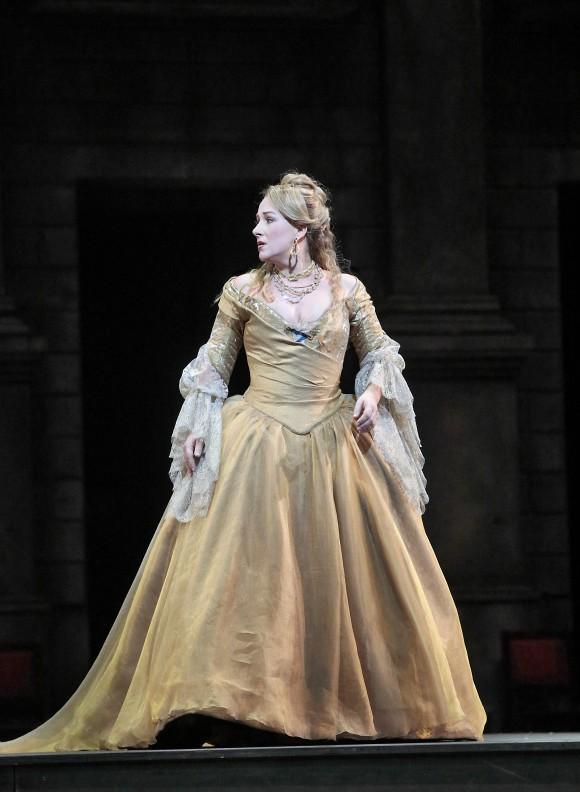NEW YORK—Shakespeare’s “Romeo and Juliet” has inspired orchestral works, ballets, Broadway musicals, jazz pieces, and numerous films. Charles Gounod’s adaptation is his most performed work, after “Faust”; it is also the most popular operatic adaptation of the Bard’s play, for though Vincenzo Bellini’s “I Capuleti e i Montecchi” is worthy, it is based on Italian sources. Gounod’s “Roméo et Juliette” is now back at the Metropolitan Opera, starring the German soprano Diana Damrau and the Italian tenor Vittorio Grigolo.
The leads have been described as opera’s hottest couple—onstage, that is, which may last longer than the real thing. Their onstage chemistry became apparent when they appeared together at the Met in Massenet’s “Manon” in 2015.

Soprano Diana Damrau as Juliette is superb throughout. Ken Howard/Metropolitan Opera






